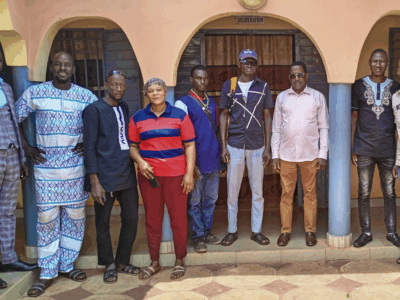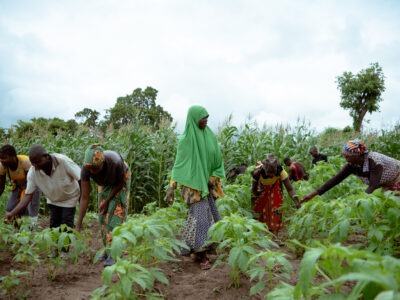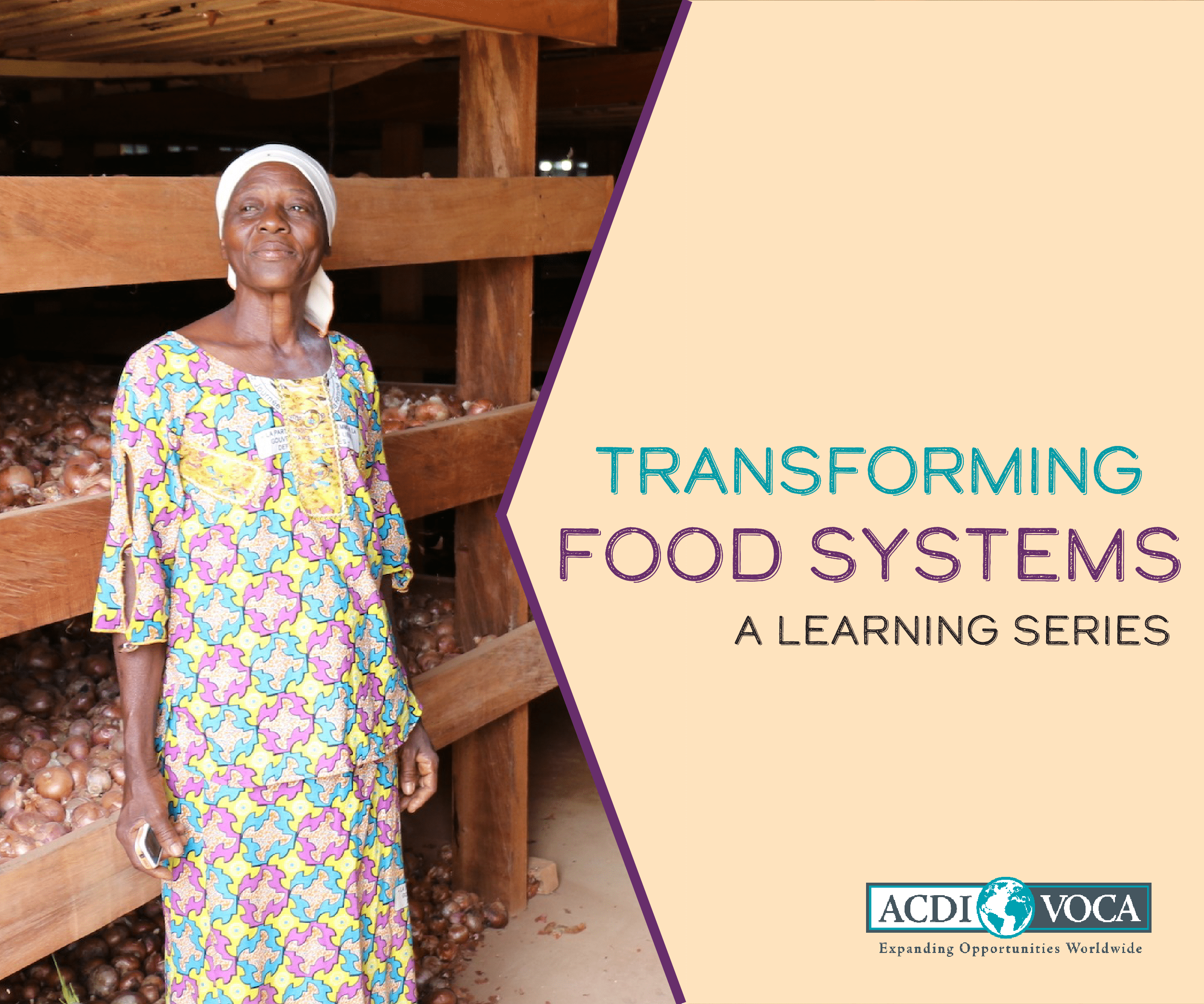
Action Track #5: Build Resilience to Vulnerabilities, Shocks, and Stress
Increased Shocks Undermine Food Systems
The frequency and intensity of shocks—all drivers of food insecurity—are on the rise. Violent conflict has increased 86 percent since 2010, more than doubling the number of internally displaced persons between 2010 and 2021. And 96 percent of low- and middle-income countries have reported exposure to extreme climate events like droughts and floods between 2015 and 2020, compared to 76 percent from 2000 to 2004. In 2020, the COVID-19 pandemic pushed an estimated 124 million people into extreme poverty, particularly affecting marginalized groups who continue to experience widening income inequality. The rural poor are frequently caught in a vicious cycle of hunger and malnutrition, environmental degradation, productivity loss, economic vulnerability, and growing conflict.
Our Approach to Building Food System Resilience
Building resilient food systems that don’t simply absorb shocks but also adapt and transform in response to or in anticipation of these shocks is critical to ensuring food security and nutrition, increasing economic benefits, mitigating conflict, and securing resources, particularly for vulnerable groups. ACDI/VOCA’s resilience programming seeks to build absorptive, adaptive, and transformative capacities linked to USAID’s resilience indicators.
The key to success is understanding what combination of resilience capacities best addresses the needs of target populations in specific contexts. Designing resilience programming that responds to these needs should include the following:
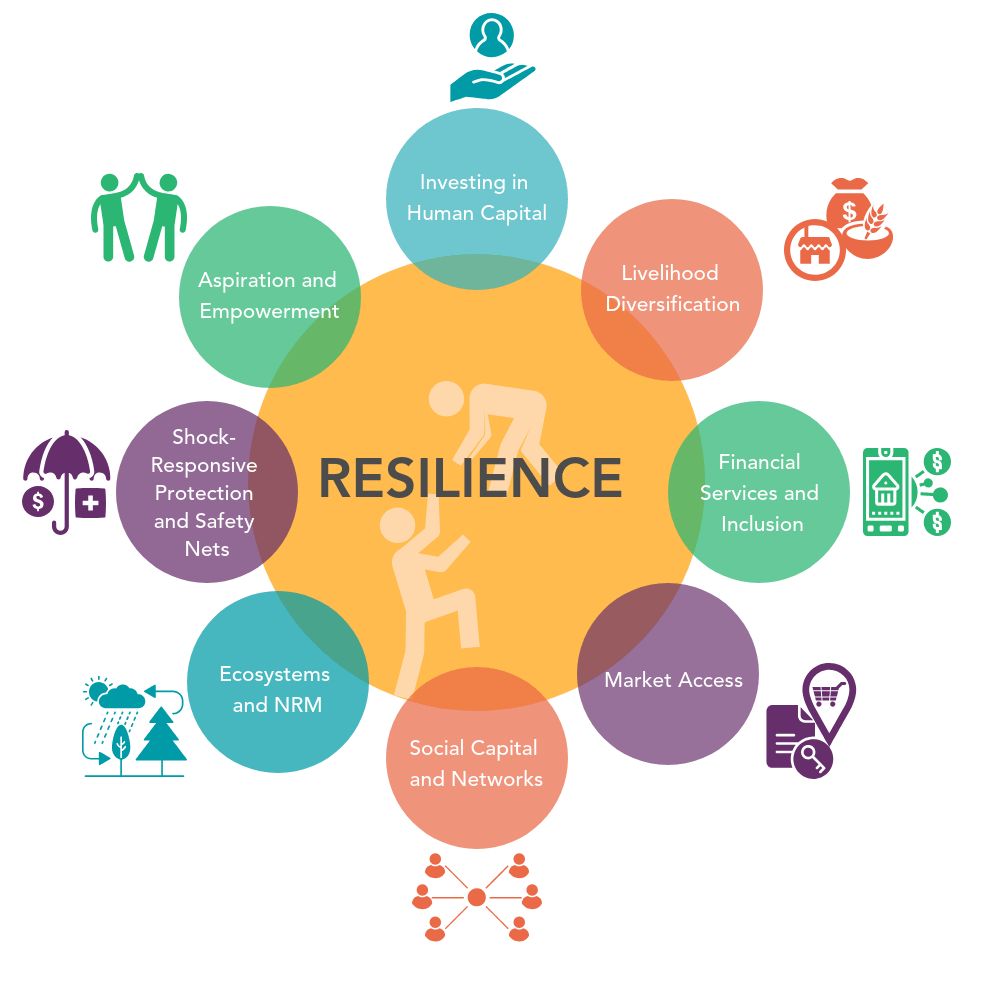
- Use of analysis tools such as ACDI/VOCA’s Rapid Resilience Assessment, Market Systems Diagnostic, or USAID’s Guidance for Assessing Resilience in Market Systems to understand the shocks, stressors, and existing coping mechanisms of program stakeholders and to identify mitigation measures that can be integrated into program design
- Sequencing, layering, and integration (SLI) to address multiple targets and outcomes at different levels of the target system (households, communities, firms, etc.) to build resources, relationships, capacities, and aspirations
- Contingency planning to ensure program readiness to respond rapidly to shocks if necessary
- Ongoing monitoring of stakeholder wellbeing and impact of interventions on participant capacity to respond to shocks and stressors, paying particular attention to which combination of interventions/capacities are more likely to result in improved resilience outcomes
Building Resilience Through ACDI/VOCA Projects
Using SLI to build household food security: In Burkina Faso, the USAID-funded Victory Against Malnutrition Plus (ViM Plus) Activity designed the Stabilize-Adapt-Thrive approach to address existing shocks. The figure below shows how the four-purpose design — focused on livelihoods, governance, inclusion, and water, sanitation, and hygiene and maternal and child health and nutrition — will build resilience of households, communities, structures, and systems through thoughtful planning of how interventions build on each other.
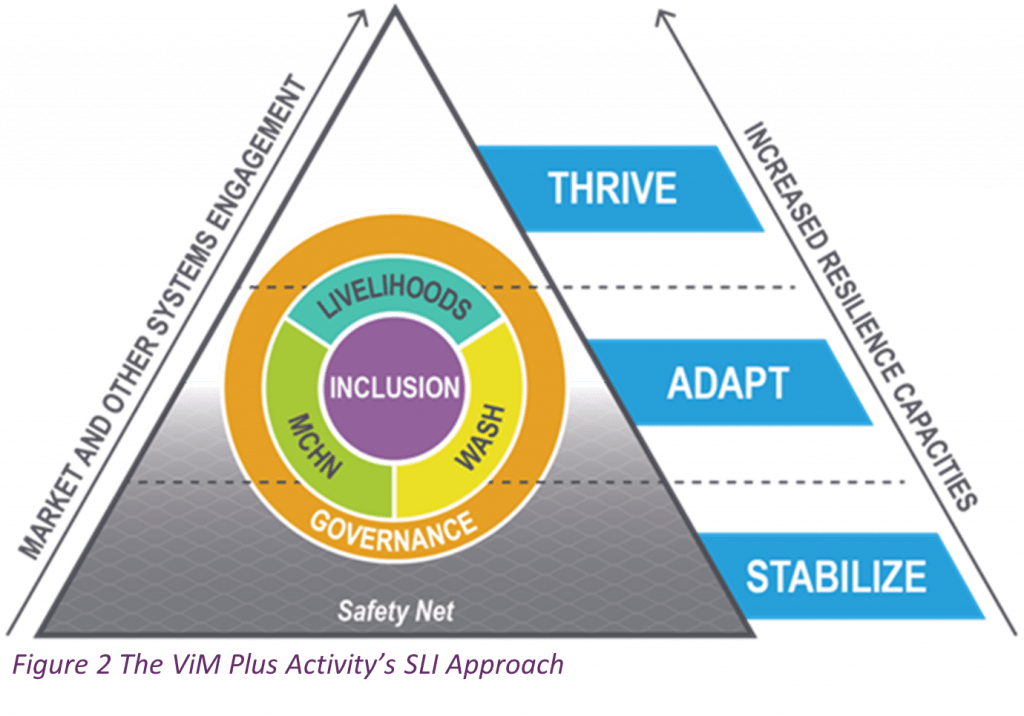
Disaster risk management in response to flood-related shocks: In Paraguay, the USAID-funded Disaster Risk Reduction in Central Department Program seeks to strengthen the ability of the government of Paraguay and vulnerable households in target intervention areas to prepare for, mitigate, and adapt to flood-related shocks. This is achieved through building the capacity of disaster risk management organizations and supporting adapted livelihoods activities for affected households.
Building restaurant staff capacity to respond to COVID-19: Our Transforming Market Systems Activity (TMS) in Honduras conducted a barrier analysis of the restaurant sector after the onset of COVID-19. This analysis found that restaurant staff training in health measures was the key to increased adoption of health measures necessary to reopen their businesses. TMS partnered with the National Chamber of Tourism, National Vocational Institute and Gastronomic Association of Honduras to develop a training manual for restaurants and provide online training to 5,000 restaurant staff from 1,571 companies.
Access previous posts in this Food Systems series:
“ACDI/VOCA’s Conceptualization of and Approach to Transforming Food Systems,” published 8/25/2021
“ACDI/VOCA Transforms Food Systems for Nutrition,” published 9/1/2021
“Building Back Better: Nature-Based Food Systems,” published 9/15/2021

